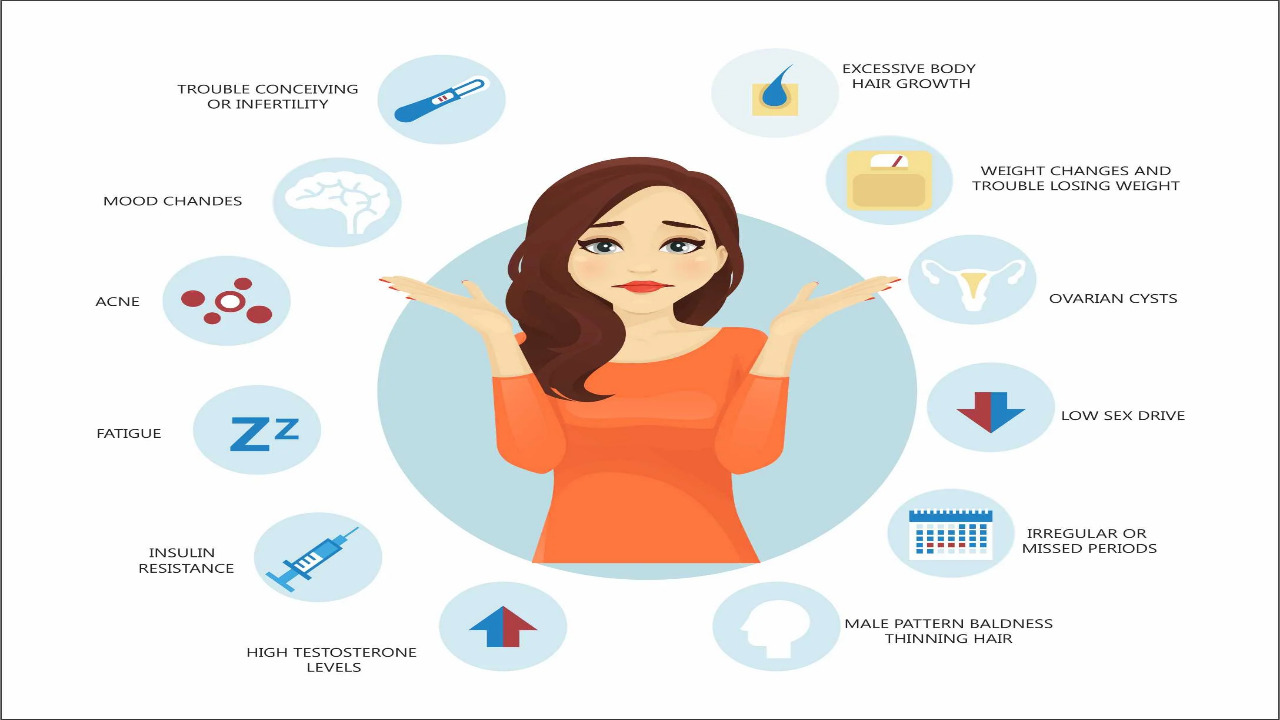If you’re like most women who suffer from PCOS, you’re feeling frustrated, tired, and bloated. You’re not sure what’s wrong, but you know it’s not normal. You’ve heard the rumors that PCOS is a “fertility problem,” but you don’t know if that’s true. PCOS is a condition that causes a host of problems, including infertility. But that’s not the only thing that’s wrong with PCOS. Studies have found that women having PCOS are more likely to experience obesity, high blood pressure, and heart disease. So what can you do to improve your life with PCOS? First, talk to your doctor. He or she can help you get a proper diagnosis and start treatment. Second, start working on your health. Make sure to get regular exercise, eat a healthy diet, and avoid stress. And finally, talk to other women fighting PCOS. They can offer support and advice.
PCOS is a condition that affects women of reproductive age. It is a complex syndrome that can really cause a wide range of health problems, including infertility. However, there are ways to improve your quality of life with PCOS. For instance, you can visit store and choose the right supplements that can ease your life. So while you are picking up the appropriate treatment for your case, we are here trying to cover how PCOS can change your life.
The Impact of PCOS on Your Life

Polycystic ovary syndrome, or PCOS, is a real problem that denotes a hormonal disorder affecting women of childbearing age. The most common symptoms of PCOS are irregular periods, excess hair growth, and acne. PCOS can also affect your fertility and increase your risk of developing certain serious health conditions, such as diabetes and endometrial cancer.
PCOS can have a significant impact on your life. Many women having PCOS struggle with their weight, and the condition can lead to emotional difficulties, such as anxiety and depression. PCOS can also make it difficult to get pregnant. If you’re struggling to manage your PCOS, it’s important to seek help from your doctor or a qualified health professional. There are many treatments available that can help you manage your symptoms and improve your quality of life.
Major Symptoms

Polycystic ovarian syndrome, also known as PCOS, is a hormonal disorder that can affect women of childbearing age. The main symptom of PCOS is irregular periods, but it can also cause other problems, such as fertility issues, weight gain, and excess hair growth.
PCOS is a very common condition, affecting up to one in five women of childbearing age. While it can surely cause a number of different symptoms, not all women having PCOS will experience all of them.
The most common symptom of PCOS is irregular periods. This means that you might have fewer than eight periods in a year, or you might skip periods altogether. You might also have periods that are longer or shorter than normal, or you might have spotting between periods.
How to Manage PCOS

Polycystic ovary syndrome is a serious disorder that can affect women of childbearing age. The condition is characterized by the overproduction of the hormone testosterone and the underproduction of the hormone progesterone. This hormonal imbalance cause a number of symptoms, such as irregular periods, weight gain, acne, and excess hair growth. While there is no cure for PCOS, there are treatments available that can help minimize its impact on your life.
One of the most effective ways to manage PCOS is through weight loss. Losing just 5-10% of your body weight can help to improve your symptoms and reduce your risk of developing associated health problems, such as type 2 diabetes. Diet and exercise are the most effective ways to achieve weight loss, but some women may also need to take medication to help them reach their goals.
Birth control pills are often prescribed to women suffering from PCOS in order to regulate their hormones and help control their symptoms. These medications can be taken orally or vaginally, and they work by artificially suppressing ovulation. If you are planning on becoming pregnant, you will need to stop taking birth control pills in order to do so.
There are also a number of lifestyle changes that can help you to better manage your PCOS. quitting smoking, limiting your alcohol intake, and reducing stress can all help to improve your symptoms. Getting regular exercise and eating a healthy diet is also important for managing PCOS.
If you are struggling to manage your PCOS, talk to your doctor. They can help you to develop a treatment plan that is right for you.
